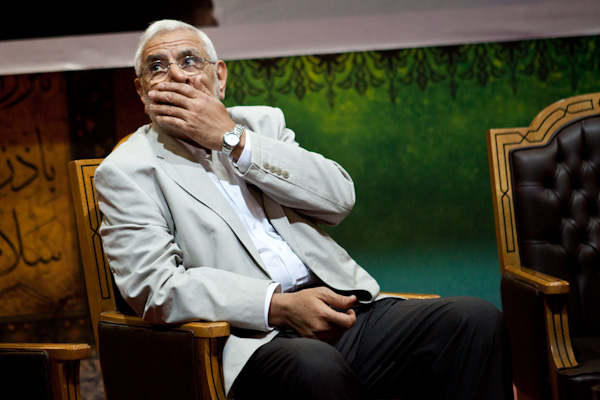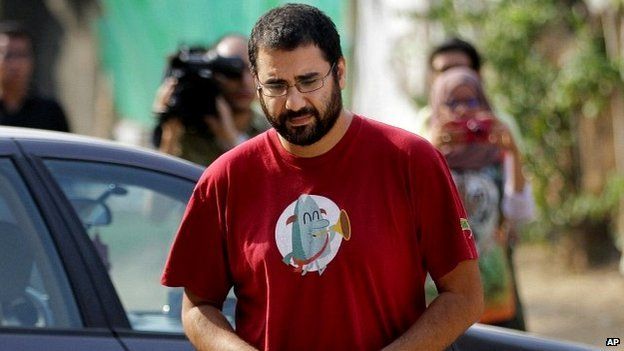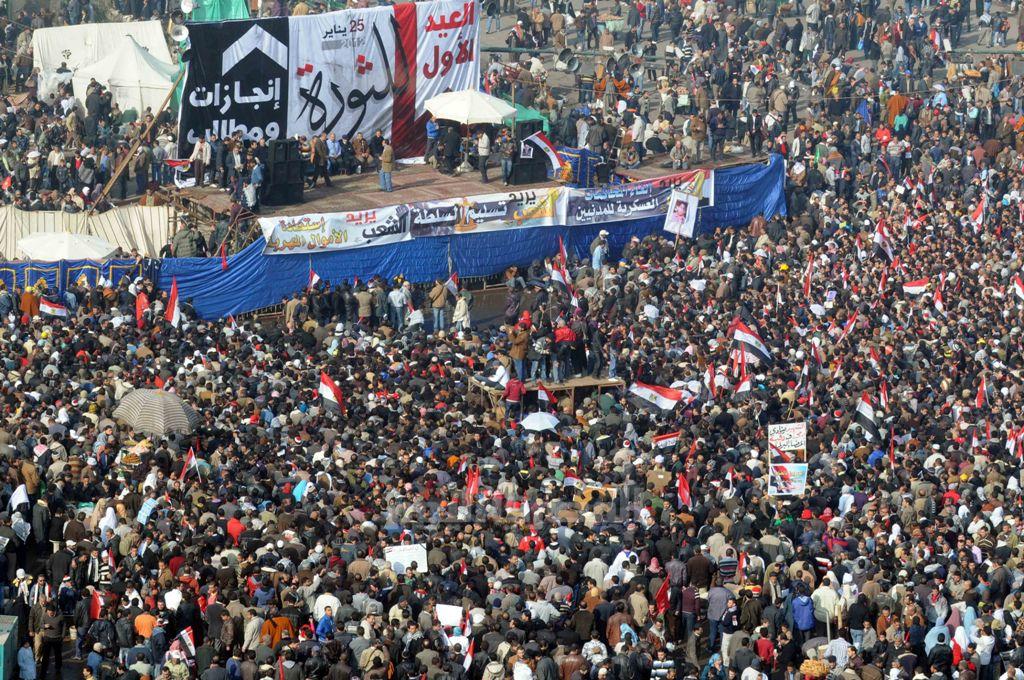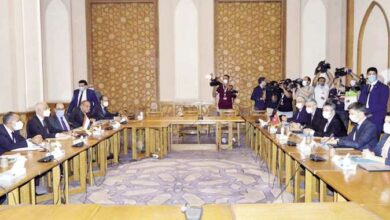In an exclusive interview to the English Edition of Al Masry Al Youm before his arrest last week, Abdel Moneim Abul Fotouh talks about reform and the future of the Muslim Brotherhood
From behind his pristine wooden desk, Abdel Moneim Aboul Fotouh is a man at ease, comfortable in his surroundings as deputy of the Doctors Syndicate. He fields questions smoothly, firing back thoughtful answers that reveal his understanding of the media attention that has focused itself on the banned Muslim Brotherhoo since Supreme Guide Mehdy Akef announced he would not seek another term as the group’s leader.
At first, the man heralded as a reformer within the conservative Islamic group is a bit apprehensive about answering questions, arguing that “much of what we say is misunderstood and this bothers me,” but after a few jokes, he relaxes, taking in each question with the marksman-like skill leaders must grasp.
Many expert observers, including Khalil Al Anani at the Al Ahram Centre for Political and Strategic Studies, believes that Aboul Fotouh is one of the leading reformers in the movement. Anani says that Aboul Fotouh and Essam El Arian are the group’s leading reformers, “which is why they get a lot of press in the West.”
The now prominent leader’s path to the forefront of arguably Egypt’s most powerful opposition group started without much fanfare. By the time he was politically active in the 1970s, the Muslim Brotherhood was a dead political group, after the government’s crackdown in the 1960s left leaders and many members either dead or behind bars.
“Our work in universities was not under any labels,” Aboul Fotouh begins, “when we joined the university there was only the leftist and the nationalists movements and no Islamic work and when the imprisoned Brotherhood were released from jail, everyone merged and they found an Islamic movement that carried their ideas.”
From university and onwards, Aboul Fotouh had a sense of determination to help others. As a doctor, this was his main mode of assistance, but in the three decades since his university days, the one-time student activist has become a leading force in the often controversial Brotherhood leadership.
He says in recent years, as a result of the groups success in elections and winning over Egyptian hearts and minds, many analysts and commentators have accused the group of radicalizing the country toward conservative Islam. This is simply not true, the reform-minded Aboul Fotouh says.
“The Brotherhood lives under a tyrannical regime and a police state. We are not a radical group. Rather, it is a reforming group that aims to reform society and we see that it needs reform,” he argues. “The need to reform has been caused by corruption and tyranny and the Brotherhood has no other means save infrastructural reform,” alluding to arguments that many put forward that the group aims for violent overthrow of the state to establish an Islamic government.
“We want to create public opinion that believes in the freedom and justice and development that public opinion could one day create change through a democratic system,” he continues. “As for public revolution, it is not how we roll.”
A number of reform-minded young Brotherhood activists look up to Aboul Fotouh for guidance, including the 20-year-old Abdelrahman Ayyash, who said in a previous interview that the middle-aged doctor is a leading influence on why he writes.
“I respect him and he really allows for discussion about issues and the things that are important to my heart,” the Western-minded Ayyash argued. “I hope this is how the Brotherhood will move in the future toward people like him.”
On every activist and commentators mind for the past month has been American President Barack Obama’s visit to Cairo, which culminated in a much-anticipated speech to the Muslim world delivered at Cairo University on June 4. The Muslim Brotherhood has remained steadfast in their continued claims that Washington’s engagement is not vital to their success.
Aboul Fotouh echoes such statements, but goes a step further in addressing the role America can play in Egyptian politics.
“Part of the US dealing with the Brotherhood, is part of its goals of dealing with the Islamic world,” he begins, “The Brothers do not want special treatment; they wish that the US, as the biggest country in the world would have its relations with others, Islamic world, African world or Latin world on 3 basic principles: respect others’ freedoms, to deal justly with the world and to respect that others have the right to grow and it is not allowed as a great country to prevent any modern advanced technologies or any scientific research from others. This will keep the stability around the planet.
“Why does the south emigrate to the north? It is because of ignorance, poverty and lack of freedom and justice [in their own nations].
“We don’t want any special treatment or to have a special affair with the US. We only want her to deal with the Islamic world through these three things: freedom, justice and development.”
Speaking to the newfound optimism rising in the region toward Obama, Aboul Fotouh maintains that America must live up to the standards it espouses for its own people.
“Yes, of course there is optimism towards America, but these feeling are not translated into real actions. It will backfire and frustration will continue,” he says of the nice words coming from Washington presently. “So far, however, the president [Obama] and his administration show a degree of positives movement.”
Of course, no discussion with a Brotherhood leader, reformer or conservative, would be complete without delving into the so-called party platform currently under debate. Aboul Fotouh argues that its meaning and message have been misconstrued by the media.
“There was a misunderstanding within the media with regards the debate between extremist and secularists. Local newspapers made it seem that the Brotherhood wanted to bann women and Copts from running for presidency, which contradicts the platform’s principle of citizenship, which doesn’t discriminate against Muslim or a Copt or a man or a woman. But what we said was: if we at any time were given the chance to nominate a candidate this is the criteria we would use and it is up to any group to nominate who they want. As for others, if they want to nominate a Hindu or a Baha’i or a Communist, it’s up to them.
“In the end, we all agree that the choice is to the people. If you want to nominate anyone, go ahead and the people can choose whom they please,” he says in defense of the party charter.
But, the other prominent question is where the country, and the Brotherhood will be in five years? Aboul Fotouh hopes democracy is part of Egyptian life by then.
“I imagine that if democracy is applied, I think that this corrupt and tyrannical regime will go away soon.”
Anani says that observers and journalists should take care when promoting such reformist elements in the Brotherhood. “They are definitely the minority and do not have the power to make things change the way a lot of people want. Certainly, they are growing, but for now, they will not win.”
When will he be released from prison and will there be elections to be won? Only time will tell.
EgyptFeatures/Interviews




